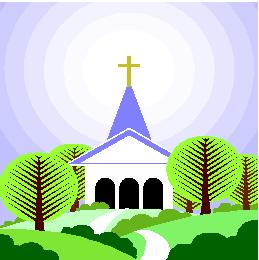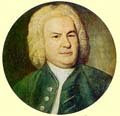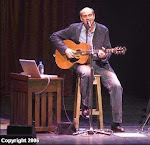
I saw signs in the retail community this year advertising
"Twelve Days of Christmas" sales. For the twelve days leading up to Christmas, the stores that held these sales had certain items at special prices each day so that shoppers could get ready for the holiday. This reflects a common understanding of the Twelve Days in our culture—that they
lead up to and end on Christmas Day.However, the
Twelve Days of Christmas actually
begin on Christmas Day. In the Christian Year of the Western Church, it is
Advent season that leads up to Christmas, and then comes
Christmastide, a twelve-day feast of our Lord's nativity. Christmastide ends with
Epiphany on January 6, which celebrates God's revelation of Christ to the Gentiles in the story of the magi. The last night is traditionally known as
"Twelfth Night," a feast that includes removing Christmas decorations. In different cultures and throughout the centuries, this season has been marked in various ways, but the point is that
celebrating Christ's birth takes place over a SEASON, and not a single day. Here is a prime example of how following a church-year pattern of spirituality can form us and transform us in Biblical ways and help us not be conformed to the ways of our fallen culture.
For most people, Christmas is over. After Thanksgiving, a season of shopping and special events builds up our spirit of anticipation toward the day for which we are all waiting. That morning, we run down the stairs, pass around gifts and open them until the room is inundated in a sea of paper and ribbon, and then we go to the grand feast. That's Christmas. The day after, when in our view Christmas is over, is "gift return and exchange" day, when we eagerly begin a new season—the season of post-Christmas sales.
However, in the liturgical tradition, Advent preparation for Christmas involves meditating on God's promises of salvation and the coming of Messiah. And Christmas Eve and Christmas Day usher in a period of almost two weeks to consider the wonder of the Incarnation. Christmas is the
beginning of our walking in the Good News of great joy for all people which has come among us.
We welcomed a new baby into our family this year, about a week before Christmas. One thing we know—life is different now. Suddenly, we don't make decisions without considering the baby. New thoughts, new concerns, new priorities mold our choices. And even though the child is small and, at this point, devoted mainly to eating and sleeping, we have found ourselves taking time—time to hold him, look at him, ooh and aah over him, rock him, kiss him, tend to his needs, and make sure at all times that he is safe and secure in our care.
Christmas is not over, it has just begun. Take time these twelve days and give attention to Jesus, the newborn King.
 iMonk has a fantastic post today that I'm asking you to read and consider. It's about the opportunity that mainline churches have to reach out to evangelicals who are tired of the shallow, a-historical, stage-oriented, programmed worship and church life of the evangelical movement.
iMonk has a fantastic post today that I'm asking you to read and consider. It's about the opportunity that mainline churches have to reach out to evangelicals who are tired of the shallow, a-historical, stage-oriented, programmed worship and church life of the evangelical movement.
























